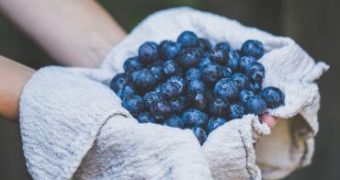Superfoods provide many health benefits and contain health-boosting nutrients, such as vitamins, minerals, healthy fats, fiber, and antioxidants.1 Experts say it’s best to eat a well-balanced diet that includes a variety rather than focusing on a particular food. However, adding superfoods to a healthy diet can provide additional nutritional support.
1. Dark, Leafy Greens
Dark, leafy greens contain vitamins A, C, and K, fiber, magnesium, zinc, iron, and calcium. They also contain phytochemicals (special plant compounds), such as antioxidants, carotenoids, and flavonoids, that offer health benefits.3 Dark leafy greens have especially high levels of carotenoids, which may protect against certain cancers.4
Examples of dark, leafy greens include:
Getting Your Vegetables From Leafy and Non-Leafy Greens
2. Beets
Beets are a highly nutritious food that contains vitamins, minerals, and plant compounds. They are especially rich in folate, which affects heart health and cell growth. Research suggests that beetroot juice could lower blood pressure and enhance athletic performance.5
3. Broccoli
Broccoli is a good source of fiber, vitamin C, vitamin K, iron, and potassium. Its antioxidants may reduce inflammation, boost the immune system, improve blood sugar control, and promote heart health.6 Broccoli and broccoli sprouts contain high amounts of sulforaphane, which has anti-cancer properties.7
4. Sweet Potatoes
Sweet potatoes are root vegetables that contain lots of vitamin A, vitamin C, potassium, and fiber. Some research suggests sweet potatoes have antioxidative, anti-inflammatory, antitumor, antidiabetic, antiaging, and antimicrobial properties.8
5. Brussels Sprouts
Brussels sprouts are nutrient-packed, boasting high amounts of fiber, vitamin K, and vitamin C. Vitamin K is known to help with blood-clotting and bone health.9
6. Artichokes
Artichokes contain various nutrients, including protein, fiber, prebiotics, vitamin C, magnesium, potassium, and phytochemicals. Some studies suggest that artichoke leaf extract may lower low-density lipoprotein (LDL) cholesterol (considered “bad” cholesterol) and triglycerides (a type of fat in the blood) and improve liver function in people with nonalcoholic fatty liver disease.10
7. Berries
Berries are rich in vitamins, minerals, fiber, and antioxidants. They also contain high amounts of the flavonoid anthocyanin, which studies show may lower the risk of heart attack in women and protect against other diseases.11
Some common berries include:
- Blueberries
- Raspberries
- Strawberries
- Blackberries
- Cranberries
8. Tomatoes
Tomatoes are a good source of vitamin C and lycopene. Studies have shown that lycopene lowers the risk of prostate cancer.2
9. Avocados
Avocados are fruits that contain many nutrients, including vitamins, minerals, fiber, and healthy fats. The monounsaturated fats in avocados have been known to reduce inflammation in the body. Research suggests eating avocados may lessen the risk of heart disease, diabetes, and certain types of cancer.12
10. Pomegranate
Pomegranate seeds contain fiber, potassium, vitamin C, and many antioxidants. Studies show this fruit may help lower blood pressure and lessen inflammation in people with the autoimmune disorder rheumatoid arthritis.13







